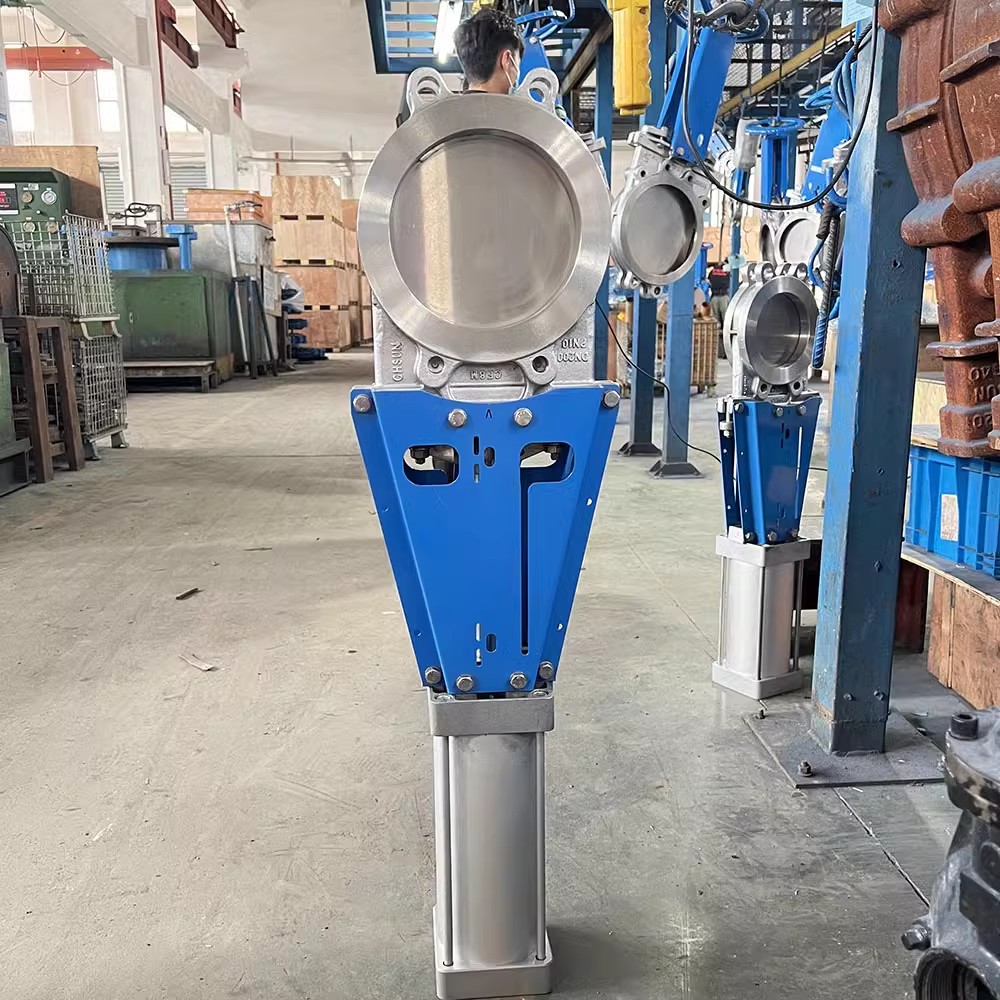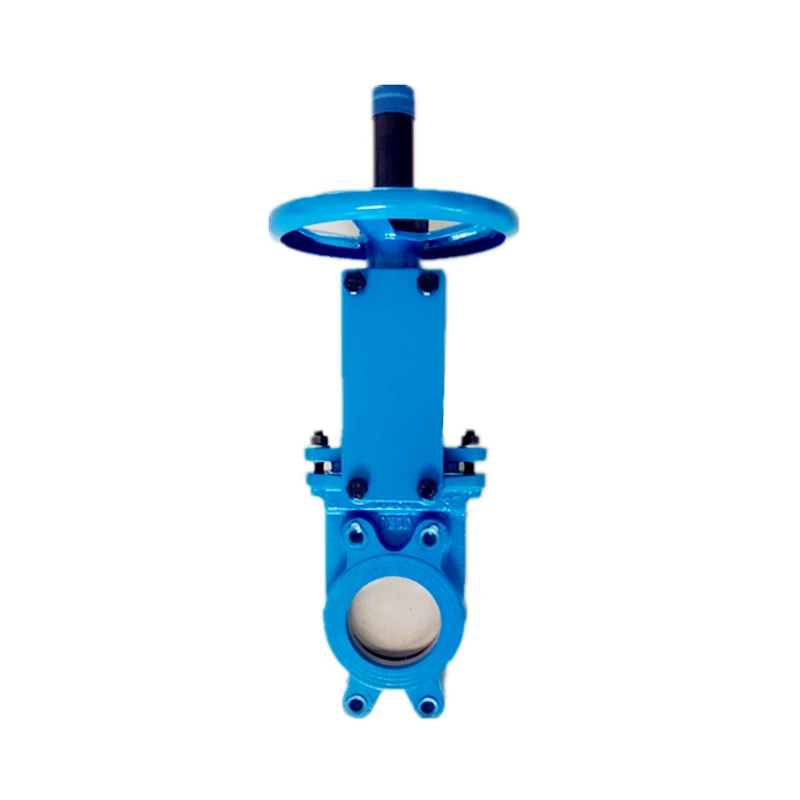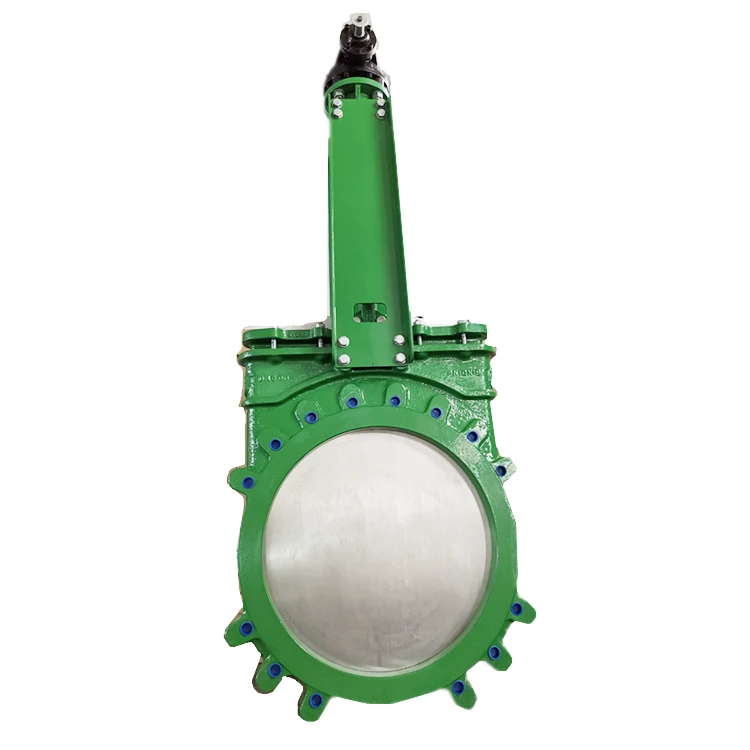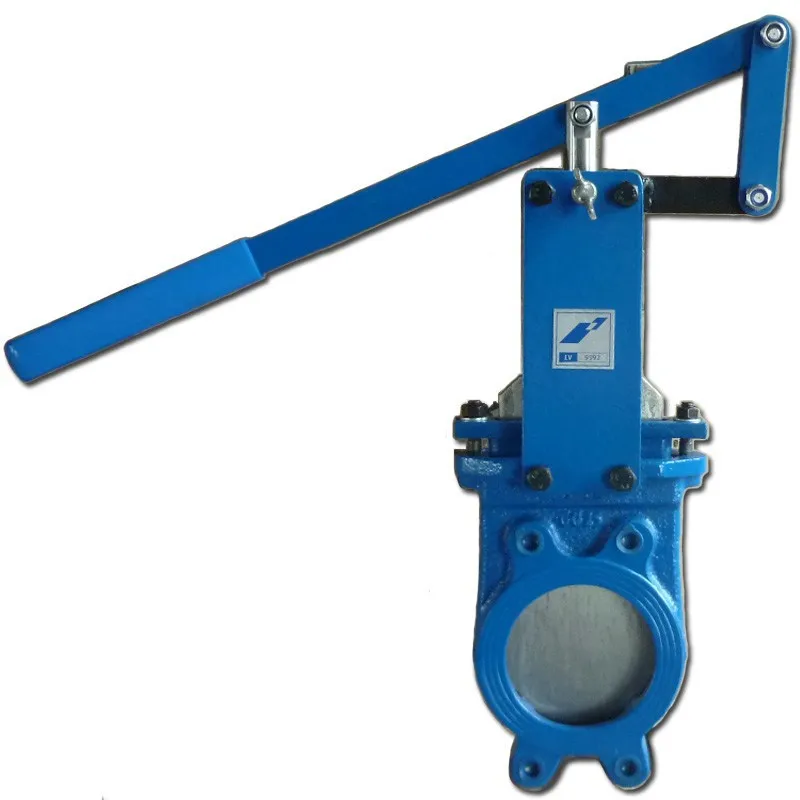Vaas Knife Gate Valve: Efficient Solutions for Wastewater Management
Key Takeaways
The Vaas Knife Gate Valve serves as a critical component in wastewater management systems, offering numerous operational advantages. Designed to withstand harsh conditions, these valves are made from durable materials that enhance their longevity, even when exposed to corrosive substances. The self-cleaning properties of the knife gate valve reduce the need for manual intervention, thus minimizing maintenance efforts and costs. This mechanism ensures that build-up of waste does not hinder performance, a significant advantage in environments where flow consistency is vital. Furthermore, their versatility allows them to handle a wide range of media, including slurries and viscous fluids. This adaptability makes the Vaas Knife Gate Valve suitable for various industrial applications beyond just wastewater treatment, ensuring efficient operation across different sectors. The combination of these features positions the Vaas Knife Gate Valve as an essential solution for addressing the complexities involved in managing diverse liquid waste efficiently and effectively.
Introduction to Vaas Knife Gate Valves: Key Features and Applications
Vaas Knife Gate Valves are integral components in the realm of wastewater management, renowned for their unique design and robust functionality. These valves provide a reliable solution for controlling the flow of various media, especially in demanding environments where durability is paramount. The blade-style design allows for effective isolation, making them particularly suitable for applications involving slurries or suspended solids. This ensures a secure shut-off that minimizes the risk of leaks, which is critical in wastewater systems.
The self-cleaning mechanism inherent in knife gate valves is a significant advantage. By utilizing the fluid flow during operation, these valves facilitate the removal of debris that may accumulate on the blade, thereby reducing maintenance frequencies and improving operational efficiency. This feature adds to their appeal in settings where clogging could otherwise pose substantial challenges.
In terms of versatility, Vaas Knife Gate Valves are adaptable to a wide range of media types. Whether dealing with liquids, gases, or viscous materials, their design allows them to accommodate various flow conditions without compromising performance. Their construction from durable materials enhances resistance to corrosion and wear, further solidifying their status as preferred choices for environmental applications.
Given these attributes, Vaas Knife Gate Valves present an efficient solution for industries focused on wastewater management. Selecting these valves can lead to improved system reliability and reduced operational costs over time.
Feature | Description |
|---|---|
Design | Blade-style for effective isolation |
Mechanism | Self-cleaning with fluid flow |
Media Compatibility | Suitable for liquids, gases, slurries |
Material Resistance | High durability against corrosion |
"Choosing the right gate valve can significantly impact overall system efficiency."
Advantages of Knife Gate Valves in Wastewater Management
Knife gate valves play a pivotal role in wastewater management, serving as a critical component for efficient flow control. Their design, featuring a sharp-edged gate, allows for precise opening and closing, making them exceptionally effective in cutting through slurries and other viscous materials. One significant advantage is their durability, crafted from robust materials that withstand harsh environments typical of wastewater facilities. This resilience reduces the risk of wear and damage over time, contributing to lower maintenance costs and extended operational life.
Moreover, the self-cleaning mechanism inherent in knife gate valves minimizes the accumulation of solids, ensuring consistent performance without the need for frequent manual intervention. This feature is especially vital in applications where sediments may impede functionality. The compact design provides versatility; these valves can be integrated into various systems handling different media types—from solids to liquids—without compromising efficacy. Their adaptability positions knife gate valves as optimal choices for not just managing wastewater but also accommodating fluctuating flow rates efficiently.
Ultimately, these advantages highlight the significance of knife gate valves as essential tools within wastewater treatment processes, reinforcing operational reliability and efficiency in demanding environments.
Self-Cleaning Mechanism and Maintenance Benefits
The Vaas Knife Gate Valve incorporates a highly efficient self-cleaning mechanism, which significantly reduces maintenance requirements. This feature is essential in wastewater management, where debris and sediment accumulation can hinder performance. The design allows for a smooth blade action that cuts through the media, ensuring any build-up is minimized during operation. The use of durable materials further enhances the reliability of the valve; it can withstand harsh conditions and aggressive environments typical of wastewater systems. This durability translates to lower operational costs over time, as the need for frequent replacements or extensive maintenance is greatly diminished. Furthermore, this valve type’s ease of access promotes prompt inspections and repairs when necessary, making it an ideal choice for facilities aiming to optimize their operational efficiency while maintaining environmental standards. The reduction in maintenance efforts not only saves time but also contributes to enhanced safety for personnel working in potentially hazardous environments. Overall, the Vaas Knife Gate Valve stands out as a crucial component in effective wastewater management strategies, driven by its innovative self-cleaning capabilities and low maintenance needs.
Versatility in Handling Different Media: A Comprehensive Overview
Vaas knife gate valves demonstrate remarkable adaptability in managing a wide range of media, making them essential in various industrial applications. These valves excel in environments where fluid characteristics can vary significantly, from handling solid-laden slurries to accommodating high-viscosity liquids. Their design facilitates smooth flow management while minimizing pressure drop, an advantage crucial for systems that rely on efficiency and precise control. Additionally, the knife gate valve's robust construction ensures durable performance even under challenging conditions, which includes extreme temperatures and abrasive materials.
The capability of these valves to perform effectively in both open and closed positions enhances their utility across multiple sectors, from wastewater treatment to the food and beverage industry. A significant feature is their ability to handle corrosive substances without compromising structural integrity. The unique self-cleaning mechanism inherent in many Vaas knife gate valves reduces the risk of material accumulation within the valve body, streamlining maintenance efforts and increasing operational reliability.
Further enhancing their versatility is the ease with which these valves can be integrated into existing systems. Adaptable flange configurations support seamless installation, allowing users to customize solutions based on their specific process requirements. This flexibility not only optimizes performance but also contributes to significant cost savings over time due to reduced downtime and maintenance needs. In summary, the Vaas knife gate valve stands as a reliable choice for industries seeking innovative ways to handle diverse media effectively while ensuring operational efficiency.

Conclusion
The Vaas Knife Gate Valve stands out as a critical component in wastewater management, offering exceptional performance marked by its robust construction and innovative design. Its unique ability to handle a range of challenging environments ensures that facilities can maintain optimal flow control while minimizing operational downtime. The self-cleaning mechanism significantly enhances its functionality, reducing the need for frequent maintenance and allowing for uninterrupted service. Additionally, its versatility in managing different types of media makes it an invaluable asset in various applications, from sewage treatment plants to industrial processes. The integration of this valve into wastewater systems demonstrates a commitment to efficiency and reliability, establishing it as an industry standard. The emphasis on durability and performance solidifies the Vaas Knife Gate Valve as an optimal choice for professionals seeking dependable solutions in their waste management strategies.
FAQs
What is a Vaas Knife Gate Valve?
A Vaas Knife Gate Valve is a specialized valve designed primarily for on/off control in industrial applications. It features a sharp-edged blade that slices through the flow, making it particularly effective in handling slurries and solids-laden fluids.
What are the advantages of using knife gate valves in wastewater management?
Knife gate valves offer numerous advantages, including exceptional durability, reliable performance in challenging conditions, and the ability to handle various materials. Their design allows for minimal maintenance while ensuring efficient flow control, making them ideal for wastewater management systems.
How does the self-cleaning mechanism work in knife gate valves?
The self-cleaning mechanism utilizes the valve's unique design to prevent material build-up on the blade and seating area. When the valve operates, the blade's motion clears any debris, maintaining efficiency without requiring extensive manual cleaning.
Can knife gate valves be used for different media?
Yes, Vaas Knife Gate Valves are versatile. They can handle a range of media, including liquids, slurries, and gases. This adaptability allows for their application across various industries such as water treatment, mining, and pulp and paper manufacturing.
What maintenance is required for Vaas Knife Gate Valves?
Maintenance needs are minimal due to their robust construction and self-cleaning feature. Periodic inspections should be conducted to ensure proper operation. Lubrication of moving parts may be required based on usage and environmental factors.
How do these valves contribute to efficient wastewater management?
These valves enhance wastewater management systems by providing controlled flow regulation while minimizing blockages. Their efficiency ensures that treatment processes run smoothly, leading to better management of resources and reduced operational costs.




